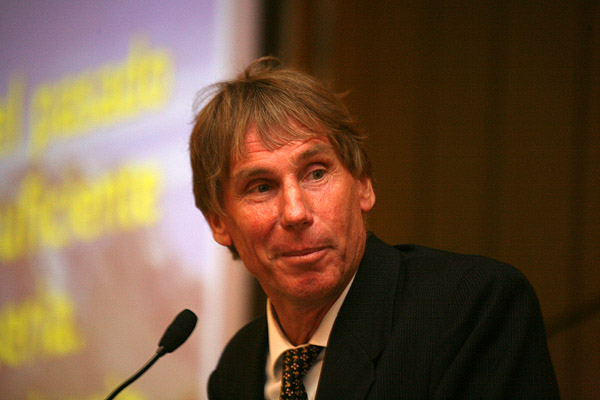 A few months ago, it was announced that Chile had been admitted to the OECD, the “club” of most developed countries. It is the first South American country to be admitted. Chile has similar levels of economic freedom as the United States. Transparency International and other institutional quality indices, also have Chile in the top 25. I remember that over thirty years ago, during my university years, Chileans were emigrating to neighboring countries escaping the chaos created by Salvador Allende’s socialism: closed newspapers, galloping inflation, expropriations which were already beginning to affect the middle class. How was this change possible?
A few months ago, it was announced that Chile had been admitted to the OECD, the “club” of most developed countries. It is the first South American country to be admitted. Chile has similar levels of economic freedom as the United States. Transparency International and other institutional quality indices, also have Chile in the top 25. I remember that over thirty years ago, during my university years, Chileans were emigrating to neighboring countries escaping the chaos created by Salvador Allende’s socialism: closed newspapers, galloping inflation, expropriations which were already beginning to affect the middle class. How was this change possible?
The career of several of the ministers of the new administration provides us with an answer. Many devoted decades to the study of the public problems affecting the country.
The Pinochet regime had not yet finished when a group of high level government officials and experts, knowing that they had been actors in one of the great transformations in the history of civilization, felt the urge to continue their work outside government. A work devoted to study, not in search for profits, but with the desire to share what they had learned not only to all Chileans, but to all the people with good will who would seek their expertise. Hernán Büchi, who occupied several ministerial jobs, was a key driver. I first met his colleague, Cristián Larroulet, who became the executive director of Libertad y Desarrollo (LyD). Larroulet and other members of their team traveled to the United States to acquire knowledge on how to create and help develop one of these institutes. They knew the role played by some of the think tanks preceding and during the Thatcher and Reagan administrations. I had the luck of being part of some of those meetings where, due to my professional job, I was able to share the experience of several successful think tanks: the IEA in London, without which the English economy would have continued in its free fall; the Fraser Institute in Canada, ranked today as the best market oriented institute outside the United States. Fraser has a huge influence in a Canada which is overcoming the US in economic freedoms, transparency, and several other areas. Chile already had the outstanding Centro de Estudios Públicos (CEP), devoted more to analysis, surveys, and publications rather than to the offering of concrete public policies. LyD complemented the scene of Chilean institutes.
Twenty years passed since then. LyD turned into the Latin American institute which everyone wanted to emulate, it won numerous awards for its superb books, it hosted visitors from most Latin American countries, but also from China, Russia, all anxious to learn. What did they go to learn? They did not seek ideology. Ideas are important, but ideas without actions are just that, ideas. They came to learn the recipes on how to solve public problems with the incentives and the expertise of the private sector, the irreplaceable motor of any healthy development process.
Apart from Larroulet, other ministers connected with the LyD “family” include Juan Andrés Fontaine (economics), Joaquín Lavín (education), and the younger Felipe Kast (planning) and Ena von Baer (government). The last two with two decades less of experience but with much more than two decades of future. There is no room here to mention others. LyD and CEP benefitted from half a century of tradition of collaboration and exchanges between Chilean universities and their US peers, notably Chicago, but also Harvard and Columbia. The merit however, goes to the leaders of these efforts and to all the Chileans who, despite their different ideologies, with great dedication, learned to work seeking consensus. Telling this story of how to transform a country needs many books. A unique contribution, just released in English, The Economic Transformation of Chile, written by the multi-faceted protagonist, the aforementioned Büchi, is a good guide.
The new economic team of Sebastián Piñera is preparing to make a new leap forward toward economic progress. The massive earthquake has added to the challenge. But the goal will be the same: to liberate the creativity of all, especially of those who have less access to education and face more problems in complying with regulatory burdens. All of us who collaborate in the efforts to build healthier economies and freer societies are in great debt with these Chilean “think tankers.” We will continue learning from them to be able to offer new horizons of progress and freedom to the civilization of the XXIst century.
Source: Atlas Network











[…] article appeared in hacer.org in April, […]